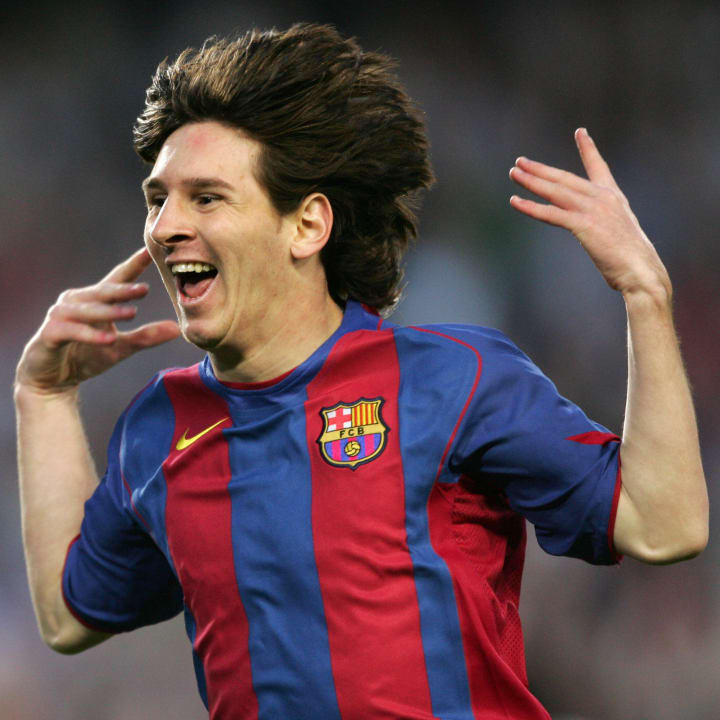
Every winner of the Golden Boy award – ranked
Tuttosport’s annual Golden Boy award for players under 20 has become one of the most prestigious in Europe.
Modern football may have brought about a lot of annoying things, but a tangible prize for what is essentially a barometer of the best wonderkid on Football Manager has been most welcome.
With 19 winners of the award already in the history books, we rank the players based on just how good they turned out to be.
Oh, Anderson. Better than Kleberson, Manchester United’s midfield magician was blighted by injuries and fitness issues galore.
The stocky Brazilian provided a great mixture of flair and typical United efficiency when he first arrived at Old Trafford, but it just never came together for him, rarely starting more than two games in a row or even reaching 20 matches in a Premier League season.
Such were the severity of his injury problems that Anderson retired in September 2019, aged just 31.
Rebuilding his career gallantly at Lille, the only way is up for Renato Sanches.
Strongly linked with a move to Barcelona and Liverpool in summer 2021, he looks a million miles away from the player who passed to an advertising hoarding during a loan spell with Swansea City.
Joao Felix had the world at his feet after scooping the Golden Boy award in 2019.
However, since his big-money move to Atletico Madrid, he has not quite kicked on as everyone had hoped. He is still a La Liga winner though, and there have been signs of the difference-maker he could become in the future.
Another story of what could have been if not for injuries, Alexandre Pato at least showed prolonged periods of his brilliance as opposed to Anderson’s cameos.
63 goals in 150 games for Milan showed Pato was, at the very least, a good striker in his heyday, winning their last Scudetto in 2011, but he never quite reached the heights he was expected to.
Still, his brief loan spell at Chelsea will make great use for pub quizzes of the future.
Okay, Manchester United fans, we hear you getting angry, but at least hear us out – has Anthony Martial actually improved that much since he scored against Liverpool on his debut? Is the pinnacle of his career an emotional utterance by Martin Tyler way back in September 2015?
Martial is running out of time to prove his critics wrong. He turns 26 in December 2021.
Mario Balotelli’s legacy is almost certainly going to outweigh what he actually achieved in a career defined by moments over achievements.
That Euro 2012 semi-final against Germany, ‚Why Always Me?‘, his sole Manchester City assist winning them the league, wearing a Milan shirt on TV while he was an Inter player, letting off fireworks in his own bathroom.
Yep, Balotelli is certainly a character, and would be higher up on this list if he had more moments to remember on the pitch.
Most young players need time to bed in during their first season in the big time. Not Pedri.
The spritely midfielder missed just one La Liga game for Barcelona during the 2020/21 campaign and also helped Spain go close to winning Euro 2020 and the Olympics during an incredibly busy summer.
What a marvel, and he’s only just getting started.
While still in his early 20s, Matthijs de Ligt has shown to the world that he’s capable of being the complete modern defender.
A shaky start to life at Juventus has allowed recency bias to creep in and make people doubt the Dutchman, but every player his age will have flaws, and he’s still well on course for a top career for club and country.
A great, glittering career, but one that should have been on par with some of his peers of his generation.
Van der Vaart grew up in the same Dutch generation as Arjen Robben, Wesley Sneijder and Robin van Persie, yet he is likely to be remembered far less than all three. His spell at Tottenham was a memorable one, but not one to warrant a higher place on this list.
You’d think a four-time winner of the Champions League would be higher up in this list, but the brilliant Isco has failed to really fulfil his potential at Real Madrid.
Sure, he’s easy on the eye and is the archetypal Spanish midfielder of the 2010s, but Isco has never established himself as one of the big dogs at the Santiago Bernabeu.
Honestly, all that separates Isco and Mario Gotze on this list is the fact that the latter scored the winner in a World Cup final.
The idea of the world’s greatest young talent moving to Bayern and playing under Pep Guardiola back in 2013 was one full of promise, but never was a fruitful situation in reality.
Struggling for game time at the Allianz Arena, Gotze returned to Borussia Dortmund in 2016, but has since battled various health and fitness issues.

The only thing stopping Erling Haaland being higher on this list is that his career is still so young.
Seemingly created in a laboratory from the body parts of various iconic strikers, Haaland has already smashed a host of goal records. What he goes on to achieve over the next decade is anyone’s guess.
For all of the titles, including a World Cup of his own, that Paul Pogba has won in his career, it still feels like a situation of unfulfilled potential.
On his day, the Frenchman is the complete midfielder, but that day is occurring once in a blue moon at the moment, and has been for some time.
A player of Pogba’s ability shouldn’t need others to continually hold his hand, but nevertheless is well worthy of a spot this high on the list.
You could well make an argument that Raheem Sterling, despite all of the doubters and unnecessary abuse he’s received in recent years, is the best English player of his generation.
A key figure in one of English football’s most dominant teams in history, Sterling has evolved from a tricky winger into a constant goal threat, tackling issues off the pitch on the way to global stardom.
Barring any serious injuries, it’s hard to envisage a future in which Kylian Mbappe does not eventually win the Ballon d’Or.
With a stellar World Cup win and a few Ligue 1 titles already under his belt, Mbappe’s legacy is already far greater than many icons throughout football history.
It’s rare that a player’s peak years come at the start of his career, but Cesc Fabregas certainly ticks that box.
Somewhere between a No. 8 and a No. 10 for Arsenal, the Spaniard was a revolutionary midfielder in the late 2000s, often carrying the Gunners‘ workload himself.
Fruitful spells at Barcelona and Chelsea followed, where he finally won the silverware his time at Arsenal deserved.
Sergio Aguero was a consistent 20-goal a season threat for Manchester City, with his arrival coinciding with the shift in power in the north-west, but he broke through as a youngster at Atletico Madrid.
Extra points are given for having one of football’s seminal moments, winning the Premier League title with that goal against QPR back in 2012.
The top scorer in Manchester United’s history makes the top two by the skin of his teeth. A silverware-laden career which was only ever missing a trophy with England, Wayne Rooney has almost become underrated because of the expectations put upon him when he was a teenager.
His records as Man Utd’s and England’s all-time leading scorers speak for themselves, though.
Simply the best (better than all the rest), there’s no conceivable argument that would have Lionel Messi not finishing as the No. 1 here.
We don’t need to write a book, chapter or even elongated paragraph to explain this decision – everything we could say is redundant at this point. Enjoy the greatness.
For more from Matt O’Connor-Simpson, follow him on Twitter!